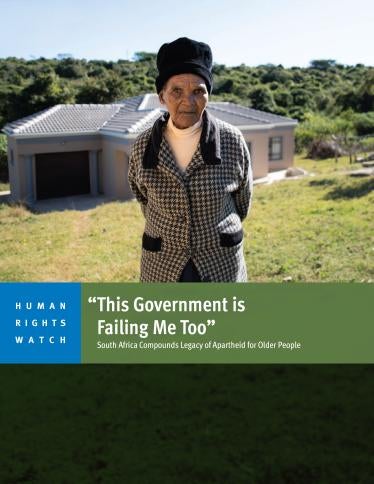After the Storm
A new web feature looks at climate change, planned relocation, and people with disabilities in Siargao, Philippines.
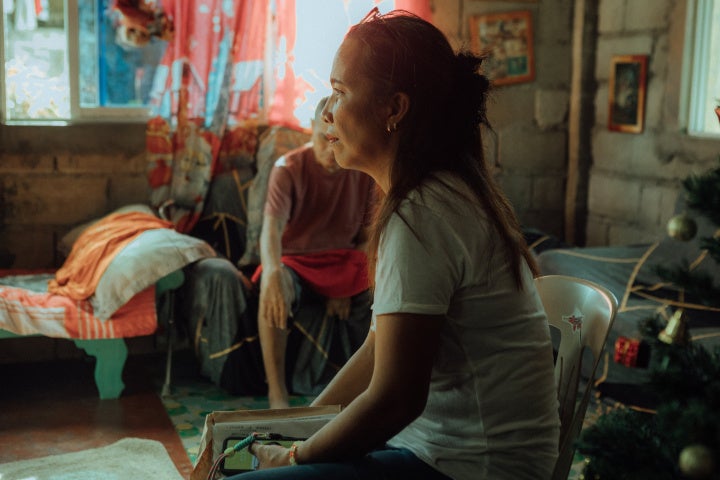
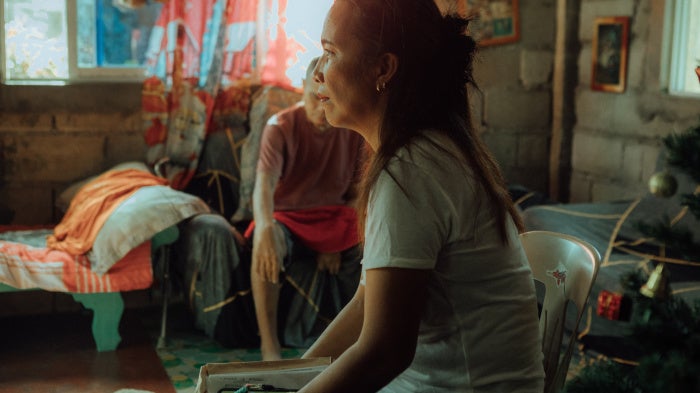
A new web feature looks at climate change, planned relocation, and people with disabilities in Siargao, Philippines.


The 90-page report, “Trading Lives for Profit: How the Shipping Industry Circumvents Regulations to Scrap Toxic Ships on Bangladesh’s Beaches” finds that Bangladeshi shipbreaking yards often take shortcuts on safety measures, dump toxic waste directly onto the beach and the surrounding environment, and deny workers living wages, rest, or compensation in case of injuries. The report reveals an entire network used by shipowners to circumvent international regulations prohibiting the export of ships to facilities like those in Bangladesh that do not have adequate environmental or labor protections.
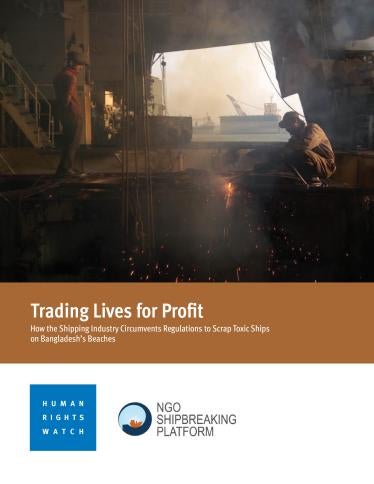
The 131-page report, “Bandage on a Bullet Wound: IMF Social Spending Floors and the Covid-19 Pandemic,” analyzes loans approved from March 2020, at the start of the Covid-19 pandemic, until March 2023 to 38 countries, with a total population of 1.1 billion, and finds that the vast majority are conditioned on austerity policies, which reduce government spending or increase regressive taxes in ways likely to harm rights. It also finds that recent IMF initiatives, announced at the beginning of the pandemic, to mitigate these impacts such as social spending floors are flawed and ineffective in addressing the harms caused by the policies. The report features a case study of Jordan, where a series of IMF programs have introduced sweeping economic reforms over the past decade, but mitigation measures have been inadequate to address the harm to rights.
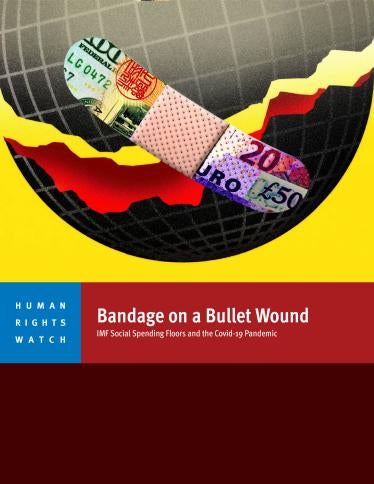
The 39-page report, “‘If We Raise Our Voice They Arrest Us’: Sri Lanka’s Proposed Truth and Reconciliation Commission,” documents abusive security force surveillance and intimidation of activists and campaigners from minority Tamil families of those who “disappeared” during Sri Lanka’s civil war. The authorities are using draconian counterterrorism laws to silence dissenting voices, including those calling for truth and accountability, while government-backed land grabs target Tamil and Muslim communities and their places of worship.
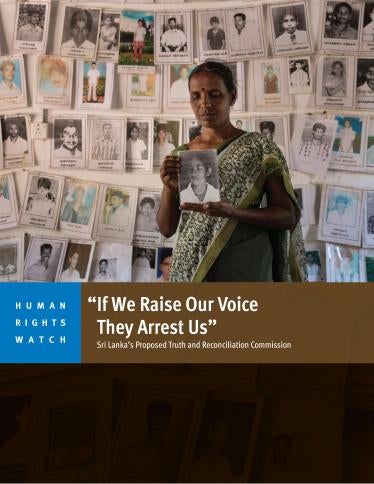
The 100-page report, “‘I Felt So Stuck’: Inadequate Housing and Social Support for Families Seeking Asylum in the United Kingdom,” found that families seeking asylum face inhumane conditions in temporary housing, including rat infestation and mould. The families experience daily struggles to get food their children will eat, as well as mental and physical health problems and serious disruptions to their children’s education.
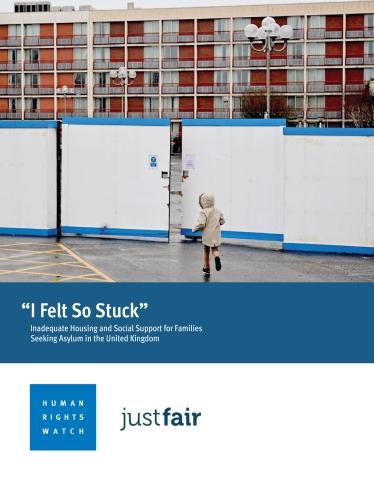
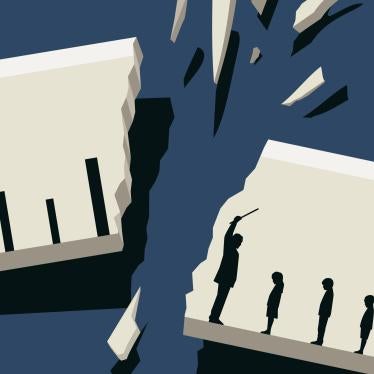
The 73-page report, “‘They Fired on Us Like Rain’: Saudi Arabian Mass Killings of Ethiopian Migrants at the Yemen-Saudi Border,” found that Saudi border guards have used explosive weapons to kill many migrants and shot other migrants at close range, including many women and children, in a widespread and systematic pattern of attacks. In some instances, Saudi border guards asked migrants what limb to shoot, and then shot them at close range. Saudi border guards also fired explosive weapons at migrants who were attempting to flee back to Yemen.
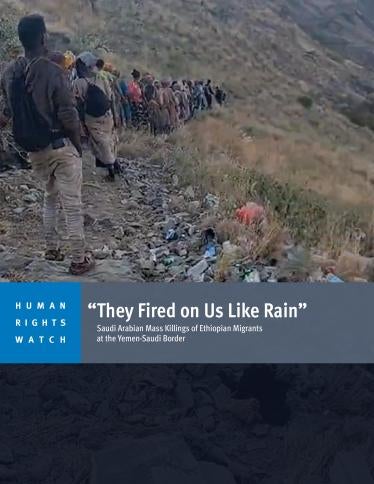
The 98-page report, “Living a Nightmare: Haiti Needs an Urgent Rights-Based Response to Escalating Crisis,” documents abuses committed by criminal groups and state inaction in four metropolitan Port-au-Prince communes – Cabaret, Cité Soleil, Croix-des-Bouquets, and Port-au-Prince itself – between January and April 2023. In Haiti, the state is nearly absent, impunity reigns, and nearly half the population is acutely food insecure. Human Rights Watch also assessed the humanitarian, political, and judicial crises, plus abuses of previous international interventions and the enduring legacy of slavery, exploitation, and abuse by colonial powers.
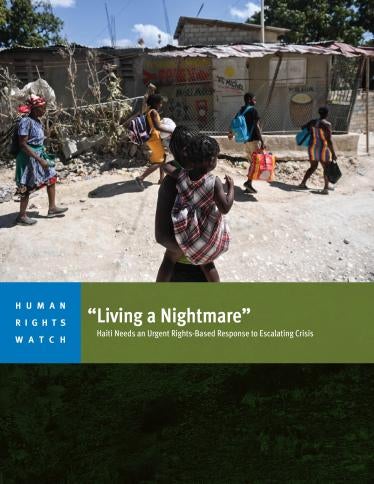
The 44-page report, “‘Crush Them Like Lice’: Repression of Civil and Political Rights Ahead of Zimbabwe’s August 2023 Election,” finds that the seriously flawed electoral process threatens the fundamental rights of Zimbabweans to freely choose their representatives. The electoral process has been undermined by the authorities’ adoption and use of repressive laws, the Zimbabwe Electoral Commission’s lack of impartiality, the Zimbabwe Republic Police’s partisan conduct and use of intimidation and violence against the opposition, the opposition’s lack of access to voter rolls, and impunity for those responsible for election-related abuses.
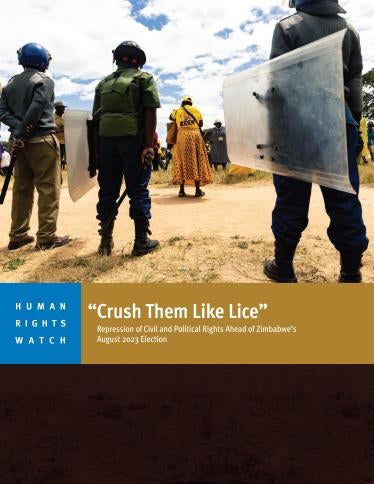
The 52-page report, “‘The Sea is Eating the Land Below Our Homes’: Indigenous Community Facing Lack of Space and Rising Seas Plans Relocation,” documents both why the Gardi Sugdub community decided to relocate and how government delays and incomplete support for relocation have stalled the move and left the community in limbo. Human Rights Watch found that while some aspects of Panamanian government and Inter-American Development Bank support for the community have been exemplary, urgent action is needed to ensure that community members’ rights are respected in the relocation.
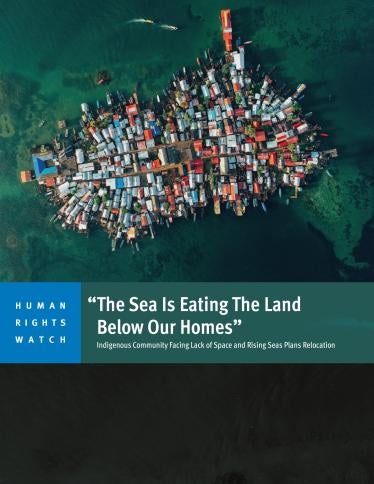
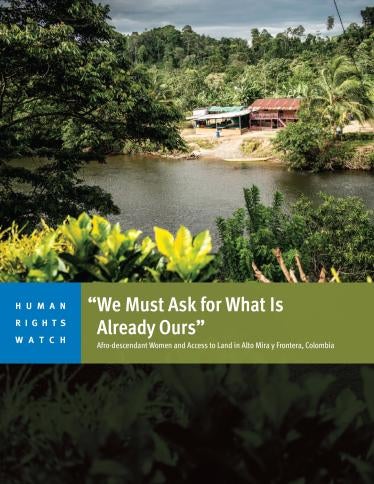
Lesbian, gay, bisexual, and transgender (LGBT) people in Saint Vincent and the Grenadines face bias-motivated violence and discrimination in their daily life, Human Rights Watch said in a report released today. The legislature should repeal the country’s colonial-era laws that criminalize consensual same-sex conduct and pass comprehensive civil legislation prohibiting discrimination based on sexual orientation and gender identity. The 58-page report, “‘They Can Harass Us Because of the Laws’: Violence and Discrimination against LGBT People in Saint Vincent and the Grenadines,” exposes the physical and verbal assaults, family violence, homelessness, workplace harassment, bullying, and sexual violence that sexual and gender minorities face under the shadow of discriminatory laws. Those responsible for mistreatment include people close to LGBT people – family members, neighbors, coworkers, classmates, and teachers – as well as strangers and police officers.
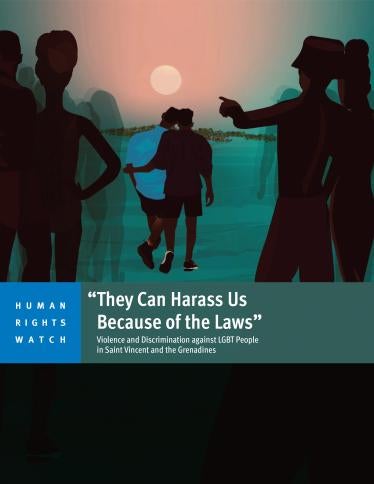
The 119-page report, “Trapped: How Male Guardianship Policies Restrict Women’s Travel and Mobility in the Middle East and North Africa,” says that although women’s rights activists have succeeded in securing women’s increased freedom in many countries in the region, old and new restrictions require women to seek permission from their male guardian – typically their father, brother, or husband – to move within their country, obtain a passport, or travel abroad. Human Rights Watch also found that in a number of countries, women cannot travel abroad with their children on an equal basis with men.
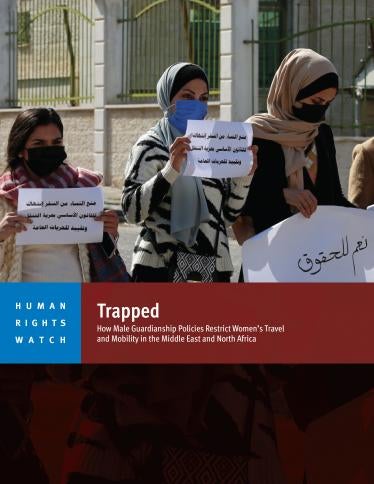
The 47-page report, “‘Our Trust is Broken’: Loss of Land and Livelihoods for Oil Development in Uganda,” documents the land acquisition process for one of the largest fossil fuel infrastructure projects under construction anywhere in the world. The development in the oilfield, which will ultimately displace over 100,000 people, is well underway. Although 90 percent of people who will lose land to the project have received compensation from TotalEnergies EP Uganda, the project has suffered from multiyear delays in paying compensation and inadequate compensation.
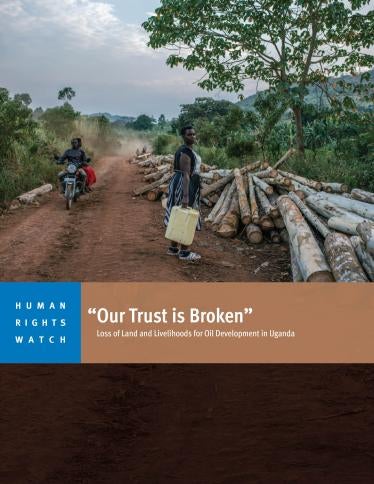

The 68-page report, “‘This Government is Failing Me Too’: South Africa Compounds Legacy of Apartheid for Older People,” details the government’s failure to effectively carry out the Older Persons Act, a post-apartheid law that guarantees the rights of older people and provides for community- and home-based care and support services. These services would enable older people to continue to live in their own homes with the support they are entitled to.
